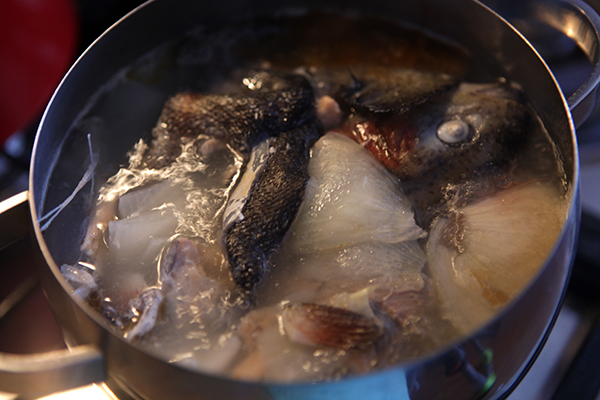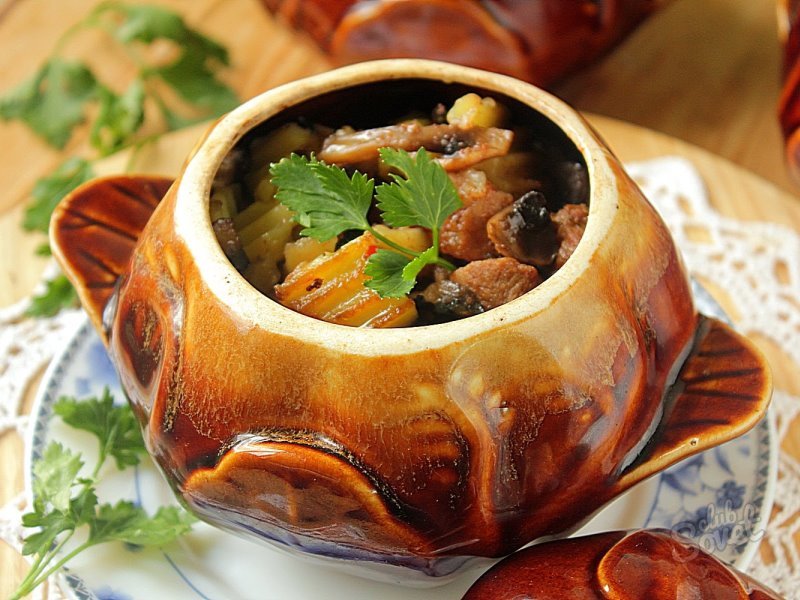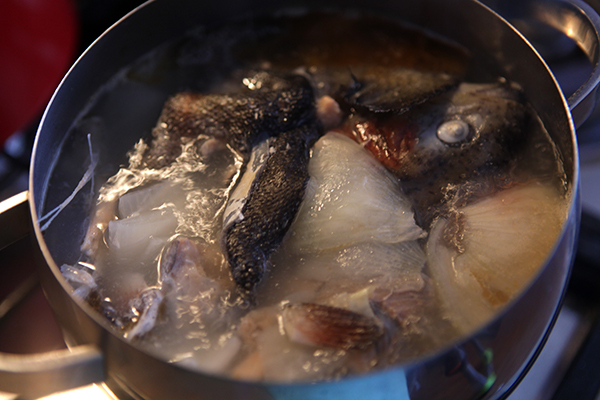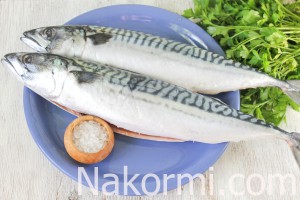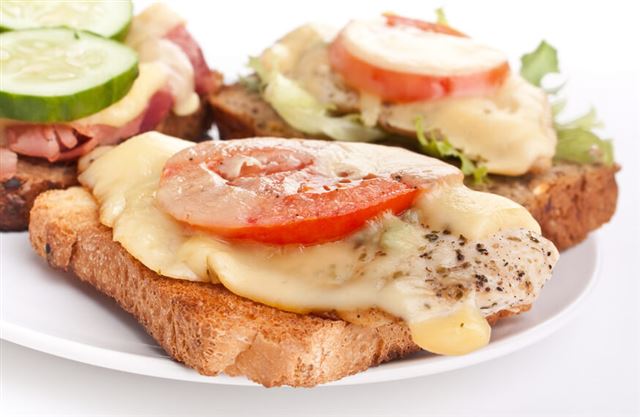Who is a restaurateur. Profession restaurateur
The person who regulates the work of a coffee shop, restaurant, fast food chain or other institutions in the field of food and restaurant business. His work is connected with all aspects of customer service: he must create the atmosphere of the institution, regulate the work of all employees, monitor the quality of services. A restaurateur is the soul of any institution, in fact, he is responsible for the impression left by the visitor to the restaurant, if he succeeds, it brings good profit.
Personal qualities
The restaurateur can manage both a restaurant and a bar, a pastry shop, a snack bar and a fast food chain. Moreover, in all cases, he must be perfectly versed in accounting, legal affairs, the quality of food and drinks, service, registration of the institution - to organize the whole enterprise.
The profession of a restaurateur involves an irregular working day, which will require endurance, and ingenuity is useful in difficult and contentious situations that sometimes arise when working with visitors and staff. Purposefulness, ability to languages \u200b\u200band organizational activities will help in a career. However, the most important thing is the desire to gain knowledge about all levels of restaurant work.
Where to study for this profession
The profession involves work in the field of nutrition and management, so you can finish both a university and a secondary school with the prospect of entering immediately into the third year of the institute. You can graduate from a university, college, continue studying at a restaurateur at the university after secondary education, or complete restaurateur courses. Each of these paths has its own specifics. A restaurateur can finish courses even without a specialized education, most importantly, the desire to develop in the restaurant sector.
Each university has bachelor's programs (4 years of full-time study and 5 years for part-time), as well as a master's program - 2 years.
Education at a restaurateur in a university:
Moscow
Faculty: Economics and hotel management
Passing score: 269
- Russian New University
Faculty: Hospitality
Entrance Exams (USE): Social Studies, Russian, Foreign Language
Passing score: 204
- Russian State Social University
Faculty: Hospitality
Entrance Exams (USE): Social Studies, Russian, Foreign Language
Passing score: 156
St. Petersburg
- St. Petersburg State University of Service and Economics (SPbGUSE)
Faculties: “Economics and Management of Service Enterprises”, “Trade and Restaurant Business”
Entrance Exams (USE): Social Studies, Russian, Foreign Language
Passing score: 256
- National Association of Hotels and Restaurants "Academy of Hospitality"
Faculties: Hospitality, Service
Entrance Exams (USE): Social Studies, Russian, Foreign Language
Passing score: 210
Pros and cons of the profession
The advantages of the profession include: interesting work, space for the embodiment of one's own ideas, high salary.
Cons: work as a way of life - there are almost no days off and normalized holidays, stressful atmosphere.
Career. Places of employment
A restaurateur may be required at various establishments: a restaurant, a network of pizzerias, a coffee shop, a wine restaurant, even a bar and a children's cafe.
Among them may be:
Restaurant "Metropol"
Pizzerias "Papa John" s
Starbucks coffee shop chain
Bar Club "Chinese Pilot Jao Da"
Related professions
Restaurateur is an extensive profession, but it differs in many ways from those adjacent to it. For example, from the profession of a cook, he regulates the quality of dishes and their taste, makes and participates in creating a menu with him, and the cook directly embodies this idea. The difference from the administrator is that the restaurateur is more knowledgeable about his establishment, has an idea of \u200b\u200ball aspects of the life of the enterprise, and the administrator only shares part of his management responsibilities.
Since the profession requires a good knowledge of restaurant business, you should think about practice and work from the first courses of study. There are educational programs that will help bring this plan to life (part-time and part-time forms). In practice, restaurateurs become either entrepreneurs or people who have passed the entire career ladder from a cook to a restaurateur and are well aware of their business.
The emergence and development of the leisure industry contribute to the emergence in our vocabulary of new designations of professions that until recently came across only in foreign films. Marker, sommelier, restaurateur - today these names are increasingly penetrating our everyday vocabulary. Learn more about what a restaurateur does.
Who is a restaurateur
If the question “Restaurateur - who is this?” Interested you, then figuring out what this person is doing will be easy. This is the owner of the restaurant or the creator of his concept, a highly professional specialist of a very wide profile, who needs to understand the intricacies of creating a menu, selecting employees, and marketing. The restaurateur determines that the restaurant will specialize in a particular cuisine, selects a chef, and thinks out a business plan for the project. This is a high-class professional, a talented manager, busy promoting this project.
Goals and objectives of the profession
The profession of a restaurateur as a business owner belongs to the category of top management, therefore the main goal of this person is to make the restaurant a highly profitable enterprise. This difficult goal implies several separate tasks and directions that the owner of the catering enterprise should solve:
- development of a competitive concept;
- selection of a suitable room, the required equipment for the kitchen, furniture for the interior;
- search for the right staff (cooks, waiters, administrator, doorman);
- attracting new customers and creating a constant circle of visitors.
What does
From a management point of view, a restaurateur is the organizer of the production process at a catering facility. He monitors the implementation of marketing tasks. The success of the institution depends not only on the choice of dishes or the quality of their culinary preparation, but also on competent marketing conducted by the owner. Attracting the target audience, which finds this place a pleasant venue for their time, is important.
Occupation History
The profession of restaurateur dates back to 1582, when the Parisian Tour d Arzhan restaurant appeared, founded by the talented chef Rurtot, who owned the inn in the inn. In this establishment, King Henry IV introduced fork fashion, often visited by Balzac, Bismarck , members of the Russian imperial family, this establishment has much to be proud of, and it rightfully bears the "Michelin Star of the Red Guide" - a prestigious restaurant award.
What qualities should possess
The profession of restaurateur is a wide range of skills. This is not only a graduate with a specialized education, director and owner of a restaurant, but also a creative person who can easily choose the right color for curtains for a banquet hall or come up with a name for a new exotic culinary dish. For a restaurateur, as a business owner, the following qualities are important:
- Creative approach, developed imagination - are implemented in the interior design of the restaurant, the development of the original menu, the conceptually thought out form of the waiters.
- The abilities of the organizer, manager - the general management of the restaurant, from the culinary subtleties of cooking to the New Year's holiday program. At the same time, the restaurant is perceived not as a catering establishment, but as an analogue of an English club - it is not just a place where you can have a tasty snack, but also a way to have a nice chat and spend time in a cozy atmosphere.
- Stress resistance, high working capacity - for working according to an irregular schedule (at a later time, weekends, holidays), typical for the work of leisure industry workers.

How to become a restaurateur
Ideally, a restaurateur, as the owner of the company, needs a basic culinary education - a specialized technical school will be the most suitable option. Although the restaurant owner is not busy working in the kitchen, a good knowledge of cooking processes will be an excellent help for everyday activities, helping to make more informed and informed decisions.
Higher education
Given that the current system of Russian higher education does not have a separate specialization in restaurant business, those who wish to work in the culinary field study in the related field of Tourism (for example, Economics and Management at a Tourism Enterprise). The knowledge and competencies that students receive in this department are easily transferred to work in a restaurant and the activities of a business owner, and training practice at catering establishments under the supervision of experienced employees will directly enter the restaurateur profession in the first courses.
Professional courses
Today in large cities of Russia there is an opportunity to take MBA courses (master of business administration, master of business administration) in the direction of “Management in the restaurant business”. The course is suitable for restaurateurs, top managers, administrators - it will not be a full replacement for higher education, but it will be a good addition to the received university diploma. Studying in distance learning MBA courses will be a suitable alternative for those who can attend full-time restaurateurs.
Study abroad
Obtaining a diploma of a foreign university in the specialty "Restaurateur" is a good option for acquiring the necessary culinary knowledge for the subsequent professional growth of a restaurant employee to the level of owner. Specialized Russian educational companies will help with the selection of a suitable university, take over the responsibilities for submitting documents, purchasing tickets, and other chores. Famous and prestigious universities of culinary specialization teaching the restaurateur profession include:
- Academy of Chefs (Italy);
- Swiss Institute of Culinary Arts;
- Culinary School Le Cordon Bleu (offices in six countries);
- Les Roches (one of the best hospitality universities in the world, represented in Switzerland, Spain and China).

Can a chef become a restaurateur
Many well-known restaurateurs have a good culinary education and are well acquainted with restaurant cuisine. For example, we can cite Arkady Novikov, who graduated from the culinary college. He began his career as a cook in the Universitetsky restaurant in Moscow - today this restaurateur owns thirty successful restaurant projects. A restaurateur in our time is in many ways a manager who needs the qualities of a manager / economist, but basic knowledge in cooking plus practical experience in the restaurant’s kitchen will not be superfluous.
Pros and cons of choosing a profession
With regard to marketing, the chef of a successful restaurant is the face of this institution - this is a kind of brand, the creation of which takes place automatically. This makes it easier to open your own restaurant - in favor of the new owner will be his reputation and accumulated customer base, but such a re-qualification as a restaurateur also has drawbacks. These include the need to concentrate on the administrative work of managing the restaurant or marketing the project, leaving the restaurateur much less time for culinary creativity.
World famous restaurateurs
The example of the first restaurateur Rurto with his establishment “Tour d Arzhan” in the following centuries was inspired by many talented followers who successfully adopted the culture and high level of customer service. Neve, Vefour with the restaurant “Frere Provence”, famous for its regional cuisine. For the owner, such a project is not only a way to make money, but a very successful option for self-expression with the help of ia new original dishes.
Famous restaurateurs of our time
Nowadays, the organization of the restaurant business is a very profitable enterprise. Among those restaurateurs who have international fame and recognition, the following names can be distinguished:
- Alain Ducasse is the owner of two dozen establishments around the world, including Le Louis XV from Monte Carlo and the Paris Plaza Athénée.
- Gordon Ramsay is a UK chef and owner of an empire with 22 restaurants plus 3 pubs, many of which have received prestigious awards.
- Paul Bocuse is not only the owner of business projects, but also the founder of the Bocuse D'or culinary competition (Golden Bocus), considered one of the most prestigious professional competitions in the world, and the chef of the century according to the restaurant guide Gault Millau .
- Joël Robuchon is the owner of a dozen restaurants all over the world, including Bangkok, Las Vegas and Tokyo.
- Savely Libkin, a businessman from Ukraine, began his career as a simple cook. Has a stake in Resta, the owner of Steakhouse. Meat and wine "," Compote "," Cottage "," Fish on fire. "

The Russian restaurant business owners (restaurateurs), who impress with the scope of their activity and become real celebrities, do not stand aside. Popular modern restaurant business owners include:
- Arkady Novikov is the owner of three dozen successful projects in Russia and abroad (including the network of democratic restaurants “Yolki Palki”).
- Rostislav Ordovsky-Tanaevsky Blanco is a Venezuelan-Russian restaurateur, founder and owner of Rosinter, twice winner of the Russian Person of the Year award for the most successful businessmen.
- Andrei Dellos is the owner of a dozen restaurants in Moscow and Paris (including Café Pushkin and Turandot), the Mu-mu confectionery chain, and a participant and winner of many professional skills contests.
- Anatoly Komm - laureate of the independent Russian award “Bay leaf”, owner of the institutions “Barbara” (closed in 2014), “Dome”, etc.
Video
- How did your restaurant career begin?
- The best career advice you got?
- The biggest challenge of your career?
- What is the secret of your success?
- What career advice do you give your employees?
“The most difficult and useful thing is to understand and accept your mistakes”
Andrey Zamoruev, owner of the Stories restaurant

My career is the realization of a childhood dream, which I went for a long time and was able to realize five years ago. I always liked to cook myself, and now I am fond of searching for new tastes and their combinations, and then, together with the chef - their adaptation for our consumer.
I set a goal - go to it, it is yours and only you know what should turn out in the end. Avoid professional snobbery, throw envy out of your head, do not set the goal of immediate success. Many people think: “Now I’ll open a restaurant and earn money,” but that’s not how it works. My main goal was to create a product that everyone will love, and then they will pay for it.
In my first restaurant, Muesli, there was a period when I had to change almost the entire team, except for the chef. We stayed with him alone and for several months selected new employees. At that moment I had to completely immerse myself in the bowels of the restaurant business: from procurement to calculating the cost of products. Until that moment, I did not even understand how it all worked.

When I started, I did it in a simple way: I started everything according to the formula and put it in autonomy, but daily work and mistakes forced me to study, draw the right conclusions and follow my goal. Probably, the quote "I see the goal - I see no obstacles" is suitable here. So, the main thing is to see at least in your head your ultimate goal.
You can’t make everyone believe in your idea, but it’s possible to unite a team around it. And probably, the most important thing that I say to all employees: it doesn’t matter what position you are in - a waiter or some other - when communicating with a guest, feel like the owner of a restaurant.
Anton Chernykh, owner of Bob’s Your Uncle restaurant

Before the opening of my first Bob’s Your Uncle, I’ve been involved in metallurgy for 15 years.
Tests take place every day. You never know, today it will be easier or more difficult.

Be attentive to details, be able to see and hear, but never count paper clips. You should pay attention to the fact that the jar with staples has fallen, but there is no need to accurately calculate all the scattered staples. You need to see the picture strategically.
A book read in childhood (I don’t remember which one) was imprinted by the hero’s words: if you don’t know what to do, take a step forward. Just for the sake of it it was worth reading.
Ivan Kukarskih, co-owner of Margarita Bistro and BB & Burgers

My career began at the age of 8-9. I am from a family of restaurateurs, so I spent all my free time in my father's establishments; can be said to have grown in them. Absorbed everything with mother's milk, this is my natural element.
I don’t like listening to advice, and I don’t want others. Each new day is a different situation, so you need to think here and now, in the moment. Probably the most important thing is to always stay on the move and look every day for opportunities to become better, tastier, more interesting.

The most difficult and useful thing is to understand and accept your mistakes and, accordingly, to work on them, this is an invaluable experience. Although such an experience is sometimes much more expensive than the most expensive education in Europe.
Squeeze a slave from yourself drop by drop per day, and you will have happiness and harmony.
Employees know that any conversations and promises are worthless: we are judged only by facts and cases (customers first of all), and I can talk well too.
Svetlana Isakova, manager of the Madame Wong restaurant

I received a higher specialized education in the specialty "Hotel and Restaurant Service". One of the first things to do was immediately work in a restaurant - a hostess in Ulya, where the boss was already legendary Isaac Correa. Then - the position of manager in Nabi, after - was the deputy manager there at Beef Bar.
For more than two years now I have been the manager at Madame Wong Restaurant. From the first Ulei restaurant and still in my career I can trace a pan-Asian direction: fusion, Asian food, Japanese gastronomy are close to me.
The best advice I received from a restaurateur Dina Khabirova (Buro Tsum, “Birch”): “You don’t need to work in a restaurant and try to build a career in the restaurant business if you are categorically not in love with all this turmoil.” By the way, she gave the second advice. Once I seriously thought about becoming a sommelier. She dissuaded: “The sommelier school is good, but you have a different purpose. It’s necessary to do what works well. ”

Previously, every major field event seemed like a huge challenge. Indeed, this is a great professional experience! Time management skills, multitasking, and planning events to the smallest detail made it possible to apply these qualities to restaurant management.
Be curious! Follow trends not only within the restaurant business and often go beyond your domain to see the needs of the audience and relevant things. At the same time, clearly understand that there is style and positioning, but there is a fashion that will pass in three months.
Even if the situation requires a momentary solution, you must always leave yourself 90 seconds to breathe out and think about the first thing that came to mind. Sometimes a fix fails.

To open a small restaurant in Moscow, it is enough to invest in the business from 100 to 500 thousand dollars. You have no extra 100 thousand bucks? Then the path to the heights of the profession will be much longer.
Restaurant business appeared in post-Soviet Russia only 15 years ago. There were no private restaurants in the country at all. The prospects were amazing! Well-known restaurateurs Arkady Novikov, Andrei Dellos, Igor Bukharov and many others began their careers just then. They went into this area, risking not only money. Arkady Novikov recalls how, after the opening of the first Siren restaurant, some mafiosi strangled him in his office and extorted money ... But the niche was absolutely free, the competition was small, and an intelligent, enterprising person could make money without millions of capital. The same Novikov started his business with $ 50 thousand, which a friend lent to him, plus added his own savings (he worked as a chef). At first he himself drove groceries by car, dragged bags ... Now, under the direction of this man - more than 80 restaurants. In those days, restaurateurs had to act as pioneers, to comprehend everything on their own experience, often "reinventing the wheel."
Today, the difficulty is different - business building schemes have already been worked out, but there are a huge number of competitors in the market. About 300 new restaurants are opened annually in Moscow (there are about 3200 in total). Add to this cafe, bars, fast foods ... There is a serious war for customers and a place in the sun. Many people manage to open a restaurant, but not everyone can make it profitable. It all depends on the professionalism of the restaurateur.
To restaurateurs or ... managers?
If you analyze the career path of famous restaurateurs, two options for professional development will become apparent.
Option one: a person has the necessary starting capital, and he decides to invest in a profitable business. Having a restaurant is fashionable today. Artists, television presenters, businessmen, singers now and then open their own institutions. Starting with Anton Tabakov and ending with Alexander Polovtsev (captain Solovets from the "Streets of Broken Lights"). Can you consider them restaurateurs? Maybe yes. They are business owners. Another thing is the extent to which they participate in the management of their institution.
Option two: gradual growth from the bottom. A man slowly but stubbornly moves upstairs: first he is a waiter, then a manager, then - a general manager and, finally, a manager. It is the managers who conduct the business of their boss in one or even several restaurants. They solve all organizational issues - from recruitment to the conclusion of contracts for the supply of products. It is not uncommon when a manager subsequently becomes a co-owner of a business, or opens his own restaurant.
And in the restaurant, and in the restaurant ...
The paths to the profession may be different, but the restaurateurs and managers have the same problems. The main thing is how to make a restaurant profitable.
It would seem - everything is simple: received a guest, fed, watered. However, in Russia and the West, out of 10 newly opened restaurants, only three are successful. Why? Restaurant business is an art.
And only a professional restaurateur, knowing all its subtleties, can make money. And the main secret is that the restaurant does not sell food at all, as many people think, but ... the atmosphere, relaxation, impressions. The restaurateur must come up with his own style, a "chip" that will attract guests. For example, opening the Pushkin cafe, Andrei Dellos built a building that two years later Muscovites began to perceive not as a “remake”, but as an old mansion belonging to some Russian nobleman, and created the corresponding atmosphere. Sometimes restaurateurs resort to unusual tricks. In the famous restaurant "Siren" - a glass floor and fish floating under heels ... In the "Barrel" in the middle of the hall there is a huge brazier, where in the presence of guests the cook fries a whole bull or a ram. There is a huge atrium in Shinka - a rural courtyard where roosters walk, a goat lies, a horse grazes, and a shepherd sits on a bench. In the cafe "Pushkin" you can get food not only for the body, but also for the mind - there is a library ...
The manager of a restaurant business is a creative person who knows how to surprise, interest, attract visitors to a restaurant.
It is no coincidence that experienced restaurateurs compare their establishments with the theater, themselves with directors, and visitors ... with actors.
How to "feed" the audience
Creating an aura of an institution is naturally not limited to extravagant tricks. You can make a bear with a balalaika dance in the middle of the hall, but if the food is tasteless, the service is slow - for the second time, customers will not come. Everything should be harmonious - the form of waiters, the design of dishes and furniture, music, color, the names of dishes ... Only in this way you can create a holistic image of the restaurant and make the client feel that he is in a special world. What works creates this illusion, only a restaurateur knows. He pays attention to every detail. For example, when compiling a menu, he comes up with such names for dishes that they would certainly want to try them. If the guest, reading the menu, reads “potatoes”, he doesn’t imagine anything appetizing ... But when he sees “Herring with potatoes” - he salivates and immediately certain associations appear ... You need to be able to offer the client a wide selection of dishes: from hot and cold appetizers to dessert. Take into account that some visitors will want fish, others will prefer roast, and others should serve oysters ... Dishes should not only be varied, but also should be well combined with each other, consistent with the general concept of the restaurant, and, of course, be tasty.
For this, the restaurateur has to hire a professional chef, it is not so easy to find him; experienced culinary masters in the labor market are in great demand. The restaurateur has to pay special attention to staff training. A talented restaurateur is able to assemble a friendly team of like-minded people, working not under duress, but with pleasure, with a smile ...
For everything in charge
The restaurateur is not only a creator and artist, but also a general manager and financier. At the heart of his policy is strict marketing calculation. You can’t make a restaurant "for everyone." It is necessary to analyze the market and choose "your" client. It is one thing to open a restaurant located in the elite housing area - Rublevskoye Shosse, Kutuzovskiy Prospekt, focusing on an evening rest of the audience with an income above the average, quite another - the organization of a cafe or restaurant for students located near universities. It is necessary to determine the pricing policy, conduct market research, engage in the purchase and placement of equipment, control the supply of fresh products, and take care of promoting the brand of the company in the services market. Of course, in large companies special services deal with all these issues, but the restaurateur coordinates their actions and makes strategically important decisions. If things are going well, a new problem arises - the creation of another restaurant, the expansion of its own network. And the restaurateur is back to work ...
Restaurateurs are not taught?
In the West, specialized universities are engaged in the preparation of restaurateurs. Most often, they use a really operating restaurant at the institute as a base. The training is practical, there are practically no “abstract” disciplines that are not related to future work. In Russia, the situation is just the opposite. Nobody prepares restaurateurs in our country, the profession itself has appeared recently. Practitioners who could pass on their knowledge to young people in universities are few. And in the training programs in the specialties, which at least somehow relate to the issues of restaurant business, the theory clearly prevails.
There is no specialty in “restaurant business” in Russian state educational standards. Those who choose this area will have to be content with training in related fields, and catch up on the missing knowledge in practice and additional programs.
Tourism Specialist? Manager? Economist?
So, the first option is to enroll in specialties related to the services sector and the tourism industry in general: "Socio-cultural service and tourism", "Tourism", "Economics and management of tourism and hotel industry enterprises."
In some universities, within the framework of these specialties, in the third year students undergo specialization in restaurant business. For example, MATGR provides such specialization in all three specialties.
At the Institute of Hotel Business and Tourism at RUDN University and the Russian New University, the specialization "Socio-cultural service and tourism" specialization is called "restaurant service".
Would you like to receive an education in tourism? You can go the other way - choose the specialty “Organization Management” with a specialization in “Hotel, Restaurant and Tourism Management”: it is available at the Russian International Academy of Tourism and the Humanitarian and Forecasting Academy.
And the last option, perhaps the most serious one, is the specialty “Economics and enterprise management (by industry).” In REA named after Plekhanov and the Russian State University of Trade and Economics, within this specialty there is a specialization in restaurant business.
Budget places - units
Specialties related to the tourism sector are one of the most popular among applicants. Competition for free places can reach from 7 to 17 people ... So if you are not a child prodigy and your parents have money, a paid ward is a perfectly acceptable option.
Prices vary depending on the popularity of the university and the quality of education. The most expensive are state universities. For example, in the Russian State Humanitarian University, the cost of a year of full-time study is about 147 thousand rubles, in GUU - 150 thousand rubles.
In commercial institutes (even in the leading specialized RMAT and MATGR) rates are much lower - 80 thousand rubles. and 90 thousand p. respectively. And in the Humanitarian-Prediction Academy you can get an education for only 38 thousand a year.
Sometimes I regret that the day is not 72 hours ...
“There cannot be“ unnecessary ”knowledge in the work of a restaurateur,” sure Irina Slusar, managing the restaurant "Marine Reptiles" and the club "Louvre"
- Irina, restaurateur and restaurant manager - are these different positions?
- In fact, it is one and the same. The difference is whether you own the restaurant that you manage, or whether you are an employee. Restaurateur is a business owner and a good manager all rolled into one. I would not risk calling myself a restaurateur, as I am not the owner of the business. On the other hand, many business owners cannot be called restaurateurs, because they do not know all this “cuisine” from the inside, and sometimes they even interfere with their advice and wishes. They see only the tip of the iceberg - brilliance and celebration, while its main part - everyday routine work - is not familiar to them.
- How did you come into this profession?
- I worked in various fields - pedagogy, advertising, production ... In my youth, like many, I worked as a waitress, but then I could not even think that life would connect me so closely to the restaurant. Before opening her first restaurant (as a manager), she worked in many positions - we can say that she went through all the steps.
- Is profile education important in this profession?
- Still, the experience is primary. For example, I am grateful to all my “teachers”, both good and bad: both the restaurants that have burnt out and those that flourish to this day. These were examples of successful business and how it should not be. But education is important in any case, and the closer it is to your “real” profession, the better.
- What's your education?
- Higher pedagogical.
“You work, then, not in your specialty ...”
- And in this work there can be no "unnecessary" knowledge. A talented restaurateur should combine many professions - he is a psychologist, and a mentor, and a manager, and an economist ... Of course, I have assistants, but only I am responsible for the result of our joint work - therefore, I need to understand everything myself.
- By the way, about assistants and subordinates. Who are they?
- All restaurant personnel are subordinate to me - from the waiter and security to the chef and accountant. I try to hire initiative people who have their own “look” and are able to submit a fresh and interesting idea.
- Restaurateur - a creative profession?
- One hundred percent. My goal is to make the person who came to the restaurant want to come back here again: to create an appropriate mood, a feeling of relaxation and comfort. And the spirit of creativity is simply necessary.
- Not so long ago, it was fashionable, and even sometimes necessary, to invite as a managing specialist from abroad. What now? Are there enough qualified personnel in Russia?
- I do not think that a foreign manager is right. He offers his own control system, not adapted to local conditions. If you invite a foreigner, then only as a co-manager. In addition, a foreign specialist will spend much more money (translator, consultant ... and some suffer from a "star" illness), while in Moscow now there are already enough of their professionals. In general, this tradition withers away.
- Does Russia have a hierarchy of restaurants and restaurateurs?
- Of course. There are restaurants of the first link, they are known to all, they are kept by leading restaurateurs of Moscow and Russia, such as Arkady Novikov, Andrei Dellos. Next - the middle link, including fast foods. Even lower are small unknown restaurants, and they can be no less successful than large ones if they have their own atmosphere, cuisine and guest. A separate caste is the institution-trendsetters. Cafe "Vogue" "Gallery", "Pushkin", for example - their success is guaranteed, these can be said brands.
- Is the competition great?
- Not that word.
- How to stay afloat?
- In one sentence not to tell. A good restaurant is the result of the integrated work of a good team led by an experienced manager. Without enthusiasm, a special “spark” will not work. You need to love the restaurant, to hurt them.
- What qualities are necessary in your work?
- First of all, energy. Passive people are not needed here, and they will not be able to work. Sometimes there are so many things that you start to regret that there is not 72 hours in a day. The share of altruism is also important, the ability to sacrifice something - you work first of all for a common cause, and only then for yourself. (For example, I rejoice more at the success of the restaurant than my own.) Health should be forgotten in general - we will be retired. Well, of course, the qualities of a good manager are needed - composure, organization, restraint.
- Yes, a set of a real Spartan. Do you feel out of place?
- Yes, of course.
- Your advice to a novice restaurateur.
- First of all, it’s worth understanding if you want to work in this business. You can’t come to a restaurant without loving it - otherwise, quickly crash. But if you like a restaurant, it is impossible to refuse it.
It all started with the Riga market. My dad and I went to the cottage in barbecue. In Soviet times, it was very difficult to find good meat. We did a lot of circles around the meat rows, looking for a tidbit. Then there were numerous experiments on its preparation. At first, the meat turned out to be tough and tasteless, but it only turned us on.
My dad is a simple Soviet scientist. He worked at the Institute of Space Medicine, which was engaged in instrumentation for space. Olympic Games 68 in Mexico City was approaching. Our team was preparing for it in the North Caucasus, and dad, using instruments, developed a program to adapt the athlete and the horse to high altitude conditions, because during the training the athletes experienced about the same sensations as the astronauts: oxygen starvation, loads, that is, were in environment with low oxygen in the air.
Then dad was made cooking senior. He was 30 years old, and this was his first touch of high meat gastronomy: dad is a child of war, he tried sausage for the first time in his life when the cards were canceled. Now he was given coupons for 50-kilogram sheep, which he received at the state farm. And further it was necessary to learn how to cut them ... Better teachers than the locals, for whom cooking meat, if not a ritual, then certainly a highly respected tradition, could not be desired.
In the 1980s, dad moved from the high - space - to the essential: he created a cooperative and began to produce food: horseradish, mustard, meat. And still does it.
Catering business
When I graduated from school in 1991, I immediately began to engage in restaurant business. I visited all cattle-breeding powers, all the largest beef production and growing centers in the world. And not only visited, but also studied there. As good as understanding meat, I can’t do anything else.
I feel sorry for vegetarians. For me, a piece of meat is impossible to compare with anything at all. I am single, but I know for sure: my future wife must first of all love meat and, in general, everything that I cook. Otherwise, I don’t understand why she needs me: in fact, she will have nothing more to love and forgive me for a large number of sins.
I really like to cook and enjoy when people eat. When they say: “How tasty!” - it’s much more pleasant for me than to hear that I am a successful businessman or that I have a beautiful car.
When I rented a house in Saint-Tropez, I went to the market myself, bought meat and grilled it for myself and my comrades. So even on vacation, I almost always cook myself: when I come to a restaurant, I can’t completely relax, because I follow the situation through the prism of my professional experience.
To become successful in the restaurant business, he, this business, needs to live, he needs to be loved and understood. The oligarchs are equally easily engaged in oil, metals, retail, banks ... But restaurateurs who would be engaged in restaurants, oil, a little bit of this and something else - there are none.
By the way, for the same reason, taking away the restaurant business is a dubious opportunity. You can take away the oil rig: it pumps oil and will pump regardless of who it belongs to. And of the 5,000 restaurateurs who, according to my information, exist in Russia, only a few could make money and build their success story.
Goodman
So far, we are purchasing meat for Goodman steaks in Australia. In the world there are hundreds of meat breeds, dozens of types of cuts and, accordingly, dozens of opportunities to make steaks. Goodman's success lies in its own specification, its own line of steaks. This is our know-how.
Goodman has almost no pork. This is not some kind of conscious choice. When we opened, we had a chop, which we positioned as the largest pork steak. But people preferred beef steaks, and therefore only pork ribs remained on the menu. So pork lost to beef in a fair fight. And in general, traditionally a steakhouse is primarily beef.
At Goodman, you can try four kinds of sauces. Why not 10 and not 20? Brevity is the soul of wit. We try to minimize the choice so that guests who come to us, instead of choosing and doubting for a long time, trust us as professionals who take care of everything for them.
Professionalism
Success in business is doing what you do best. If a burenka cannot bring more than 3.5 tons of milk, 10 tons cannot be squeezed out of it. It is impossible to force me to jump 5 meters in length or play basketball as a two-meter person does.
Meat and business are my talents.
For me, business is a game. I don’t have any specific style of play: my desire to win sometimes makes me aggressive, sometimes conservative. I do not think in terms of “hard - easy.” There is a problem - food and solve it.
We can say that we are engaged in modernization: we are developing livestock farming in Russia. But such categories are not my guide. I just love the business that I do, and I am motivated by the results of my work.
I'm short. And the smaller the growth, the more complexes, the more a person needs to feel that he can do something. Therefore, for me, every burenka brought to Russia is an opportunity to see the result of my work, to feel more confident in this complex world.
I am often asked why we do not leave our skins to sew something from them and make money on it, why do we sell them? Because we will not feed anyone with skins. We will dress. And dressing people up beautifully, warmly and well is no longer for us.
If I liked to make clothes, I would probably make money and be successful in this area. But I have a favorite business and the right not to force myself to understand what is not interesting to me.
The world does not submit to money, but to skill. And I conquer people with meat.
After 10 years…
If you want to make God laugh, tell him about your plans. I can’t say what I will be in 10 years. But I know for sure: there are things that I do not want to lose over these 10 years. I want to continue to love people, just as I love now. Feed them. I do not want any conventions to hold me. I would like my values, views on life, which I share today, to hold on to me. If for me in 10 years a piece of meat remains my main value, I will be extremely happy about it.





